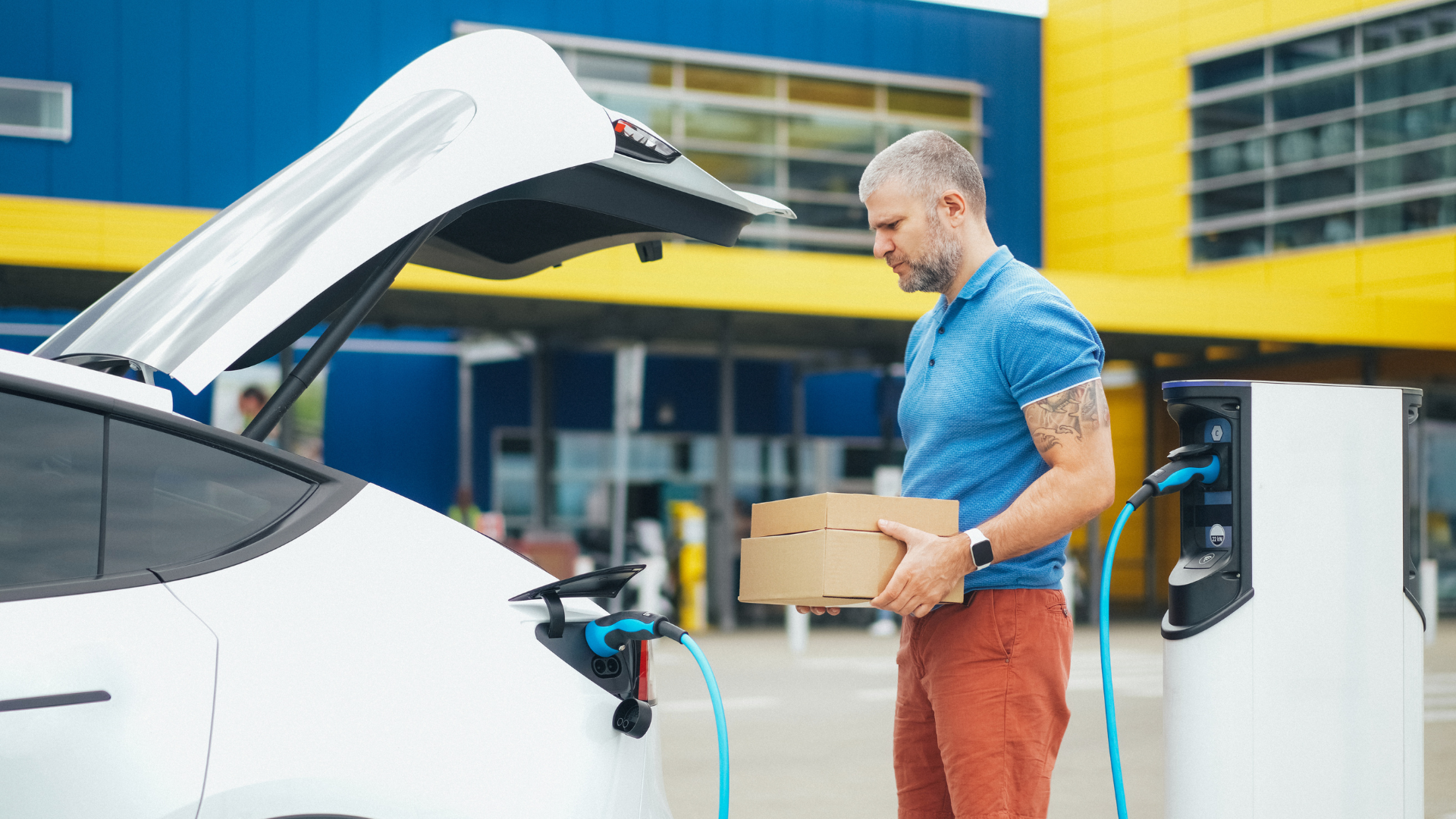The Sustainable Mobility Question: Are EVs Really Climate-friendly?

Electric vehicles have been touted as the future of sustainable transportation. But are they really as green as they claim to be? Let's find out.
Giant automakers like Toyota, General Motors, and Mercedes-Benz have followed Tesla's lead and introduced EVs to the market. Meanwhile, governments worldwide have taken notice of the trend, offering financial and non-financial incentives to switch to EVs.
Thanks to their promise of lower operating costs and zero emissions, EVs have proven to be overwhelmingly popular in many countries. However, while most experts agree that electric vehicles are more eco-friendly than conventional cars, there is still some contention about how they're manufactured and powered.
Read on for a deep dive into whether EVs are really as climate-friendly as they claim.
What are EVs?
As the name suggests, electric vehicles are vehicles powered by electricity or an electric motor as opposed to conventional gasoline-fueled internal-combustion engines (ICE). Their energy source can come from an onboard battery or a plug-in connection, which allows for an external power source.
EVs can be categorized into three distinct classes depending on their power source.
- Battery Electric Vehicles (BEVs) are fully electric vehicles with rechargeable batteries. Their motors are only powered by electricity, so they do not emit carbon dioxide (CO2). BEVs are the most popular electric vehicles on the roads today.
- Plug-in Hybrid Electric Vehicles (PHEVs) have two power units, one utilizing fossil fuel and the other using electricity. They typically come with batteries that can be recharged through a power outlet or regenerative braking. When running only on its electric motor, the average PHEV will provide an approximate range from 20-40 miles per charge, perfect for short daily commutes. While not as green as BEVs, PHEVs are still a viable solution for those striving to reduce their carbon footprint.
- Hybrid electric vehicles (HEVs): These EVs have an electric motor and an internal combustion engine. To recharge the battery, they use regenerative braking and can switch between electric and gasoline-powered modes based on the driver's needs. Most HEVs use petrol power when traveling at higher speeds and switch to their electric motors for lower-speed maneuvers. HEVs typically have better fuel efficiency than non-hybrid cars but still produce tailpipe emissions.
Are EVs really better for the climate?
The electric vehicle revolution is based on the idea that, since these vehicles produce little to no tailpipe emissions, they are far better for the environment than conventional cars.
But is this really the case?
The answer to this question is yes. Experts generally agree that EVs are much better for the environment than their gasoline-powered counterparts.
For starters, EVs running solely on their electric motors produce no tailpipe emissions. EVs are also far more efficient than gasoline cars, with the average EV providing 2-3 times the energy efficiency of a conventional car. Furthermore, BEVs and PHEVs can be charged from outlets connected to renewable energy sources, such as solar and wind power.
EV proponents have excellent reasons for championing electric vehicles' potential to reduce transportation's enormous carbon footprint. However, critics point to issues surrounding the production of electric vehicles and how the electricity that charges them is generated.
To best understand if EVs are as climate-friendly as they're made out to be, it's essential to consider the entire lifecycle of an electric car. From their production and usage to their disposal, EVs can significantly impact the environment.
- EV production
The environmental impact of producing electric cars is one of the primary points of contention. The manufacturing process of EVs requires a tremendous amount of energy and resources, resulting in emissions that are unfortunately linked to climate change. This is especially true for producing lithium-ion batteries, vital components of electric cars.
To put it into perspective, synthesizing the materials required for battery production necessitates heat ranging from 800 to 1,000 degrees Celsius, a temperature that can only be achieved by burning fossil fuels and further contributing to CO2 emissions.
The precise level of CO2 emitted from manufacturing batteries can vary significantly depending on the materials used, how they're sourced, and the source of energy utilized during manufacturing. Nevertheless, on average, the production of batteries accounts for around one-third of an electric car's total emissions over its entire lifecycle.
- EV usage
The electric vehicle usage phase is also contentious. Electric cars emit far fewer emissions than petrol or diesel-powered vehicles. However, EV charging still requires electricity. Given that about two-thirds of global electricity comes from fossil fuels, the popularization of electric vehicles will likely lead to an increase in electricity consumption from these sources and, consequently, higher carbon emissions.
Fortunately, countries are increasingly working towards transitioning away from coal and oil and embracing renewable sources of electricity like wind and solar. Germany, for instance, aims to get 100% of its energy from renewable sources by 2035, while in the U.S., several states, including California and New York, are pushing for a complete transition to renewables by 2050.
- EV disposal
Thankfully, the popularization of electric cars is moving in tandem with the development of efficient recycling and disposal processes. Several battery manufacturers are investing in technology to reclaim materials from used batteries. Meanwhile, governments are beginning to create regulations to ensure that spent batteries are disposed of in an environmentally-friendly way.
In Europe alone, over 35 lithium-ion battery recycling projects have either been completed or are currently in progress. The EU Battery Regulation is also set to boost the battery industry's endeavors in recycling vital raw materials like nickel, cobalt, and lithium.
EVs are essential for a greener future
According to the International Energy Agency, modern-day transportation has the highest reliance on fossil fuels and accounts for nearly 40% of global carbon emissions annually. Therefore, the transport sector must be one of the foremost priorities for the world to transition to a more sustainable future.
Electric vehicles offer a viable solution to reduce carbon emissions from transportation and contribute towards a net-zero future. While their life cycle is not entirely free of emissions, they are a far more sustainable option when compared to petrol and diesel-powered cars. EV technology is also steadily improving, thanks to the emergence of new materials and innovations, which will only help to reduce their emissions further.
IoT2Market is excited to be part of the transition toward a greener transport sector. As the leading marketplace for IoT and related solutions, we are giving developers in the EV space access to the resources they need to accelerate their projects and bring them to market faster.




